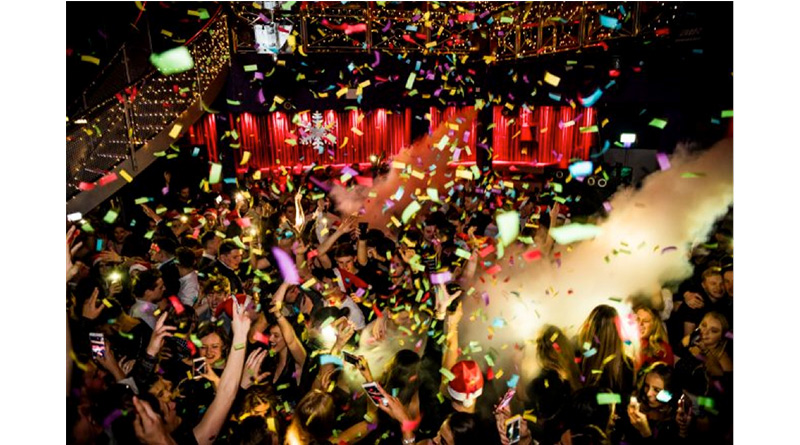Late Night Leisure Spend Up Year On Year As Brits Feel The Christmas Cheer

Almost half of Brits will spend more on a night out this festive period.
Consumers are spending an average of £69.64 on a night out, up 3.9% year on year (last quarter: £70.69), according to the latest Deltic Night Index.
As well as spending more, consumers are also going out more often, in line with last quarter – the research shows that we go out on average 1.51 times per week, compared to 1.42 times last quarter and 1.19 times last year. The Deltic Night Index is a quarterly report published by late night leisure leader The Deltic Group. It looks at the changing consumer habits in the UK’s evening and late-night leisure sector. This quarter’s report also explores consumer behaviour during the festive season.
The report found that half (50.3%) feel that a big night out is a good way to mark the occasion and celebrate the end of the year. As a result, more than 4 in 10 (42.3%) Brits plan to go out more often during the festive period than they usually would, and nearly half (47.8%) tend to spend more on these nights out than usual. Interestingly, this figure rises to 50.6% for 31-45 year olds, 54.1% for 26-30 year olds and 58.2% for 18-21 year olds.
Peter Marks, Chief Executive of Deltic, commented, “We know that consumers celebrate occasions by going on a night out, and what bigger occasions are there than Christmas and New Year? We’re seeing this trend reflected in this quarter’s figures – more than 50% of Brits believe that a big night out is a good way to celebrate the end of the year, and as the figures show, we certainly will be celebrating! More than 40% of us will enjoy more frequent nights out to catch up with friends and almost half of us will spend more while we’re out.
“Here at Deltic, the festive period is one of our busiest times, and we are looking forward to delivering fantastic, safe, entertaining nights out for our customers through Christmas, New Year’s Eve and beyond.”
Key findings: Seasonal celebrations
This quarter’s report explores how people’s nights out change during the festive period:
- 42.3% of Brits – and 50.4% of 18-21 year olds – say they go on a night out more often than they usually would during this period, while 47.8% say they spend more on a night out
- 44.4% of respondents are more excited to go on a night out during the festive period – as are 58.0% of 18-21 year olds
- Half (50.3%) believe that a big night out is a good way to mark the occasion and celebrate the end of the year.
The report also reveals why people go out more often during this period:
- Catching up with friends was the most popular response, with 49.0% citing this as a reason
- A third (33.5%) of Brits said they go on a night out during this period to get into the festive spirit and see in the new year with a crowd
- Almost a quarter (24.4%) said they go on a night out to catch up with relatives – though 13.5% said they went on a night out to escape relatives. Among 18-21 year olds, this figure rises to 21.1%
Key findings: Spend and Frequency
- Consumer spend on a night out has risen from £67.05 last year to £69.64. This figure comprises every component of the evening, from drinks at home and transport to the venue to food and drinks out and getting home. The year on year growth was driven by increased spend across all categories except drinks in the venue, which was roughly flat
- 26-30 year olds spend more than any other age group: average spend amongst this group increased to £75.24 among
- 58.8% of respondents said they go on a night out at least once a week, up from 53.9% last year. This figure rises to 78.6% among 18-30 year olds
- More than a quarter (26.2%) of 18-21 year olds go on a night out 2-3 days a week, compared to 14.7% of all consumers
Key findings: Late night economy mix
- The pub continues to be the most popular form of late-night leisure entertainment. 25.6% say that this is the form of late-night leisure they spend the most money on each month
- A quarter of consumers spend more money on going to bars and clubs each month (25.1%) than other leisure types
- Among 18-21 year olds, bars and clubs are the most popular expenditure (41.1%). This is followed by the cinema (26.5%) and the pub (18.3%).
